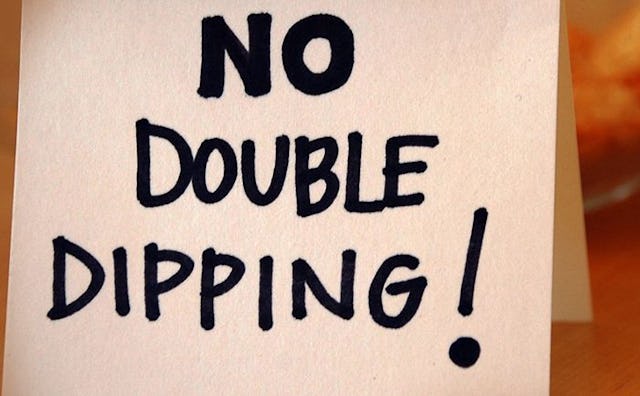Do You Dare to Double-Dip?

Oh, the horror.
Whether it’s watching sloppy kids head towards the bowl of dip you were eyeing and have now given up on, or that classic Seinfeld moment, we all know that the double-dip is just plain wrong. Or do we?
It may not start fights at parties, but the double-dip is definitely a social faux pas, with the reasoning being that the mouth-kissed chip heading back into a public bowl is a germ-spreading nightmare, adding potential disease to its general impropriety. But is that true? The guys at Mythbusters tackled this one, with the mother of all dipping snacks: sterilized chips and a “salsa-like” substance. The question: Is double-dipping really the same as putting your whole mouth right in the dip? That’s what George Costanza’s party nemesis claimed, and it’s probably the prevalent belief outside of the sitcom world too.
So the Mythbusters guys started by creating a “clean room” to work in. They really did sterilize their chips (and their Petri dishes too, of course) and created their salsa-like substance with agar and water. The only variable left, they explained, was their saliva. They tested two situations: the dreaded double-dip vs. the full mouthful of dip taken into the mouth and then spat back into the dish. Gross!
The results were conclusive. The dip with the chip came back with very little difference from a bacterial perspective, almost inconsequential. People who fret over one little bacterial colony may want to avoid public transportation, for example, or restaurants. But the full mouth-spitting dip yielded “tons” of bacterial colonies, enough to justify the visceral reaction you already have from watching somone spit the dip out after a good swish.
So now we’re left with the social niceties. Should the Georges of the world really dip the way they want to dip? Is it rude? Do you see it as a deterrent when you’re heading towards that bowl, chip or celery stick in hand, and someone bites and reaches back for another taste? People with toddlers are probably completely immune to this debate, but the rest of us, who have long stopped eating their children’s leftovers (sometimes off their faces), might not feel the same way.
The conclusions are yours to draw, but now at least you’re armed with science.
Watch the entire Mythbusters test here:
This article was originally published on